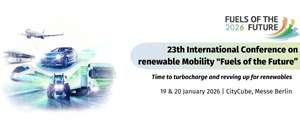Virgin Galactic to offer biofuel-powered spaceship
Over the past few months, pilots have conducted several test flights of the space-launch vehicle Eve. Eve's jet engines will run on kerosene initially but are also capable of running on butanol, a biofuel that can be made from algae.
‘The [carbon] cost of us putting someone into space will be less than flying to London and back on a commercial plane,’ Richard Branson, owner of Virgin Group, says.
The mother ship is designed to ferry SpaceShipTwo and its two pilots and six astronauts more than 50,000 feet above the Earth's surface SpaceShipTwo's rockets will briefly burn nitrous oxide as the spaceship would require no fuel for takeoff, re-entry and landing.
Carbon dioxide emissions per passenger on a Virgin Galactic spaceflight would be about 60% of a passenger's carbon footprint on a round-trip flight between New York and London.
About 70% of a spaceflight's carbon dioxide emissions would come from mother ship Eve, which must carry SpaceShipTwo into the stratosphere.
From the stratosphere SpaceShipTwo would blast to a sub-orbital altitude of about 360,000 feet using hybrid rockets.
SpaceShipTwo is slated for completion by the end of the year, followed by about 18 months of testing.
A ticket to ride is $200,000 (€141,000).










